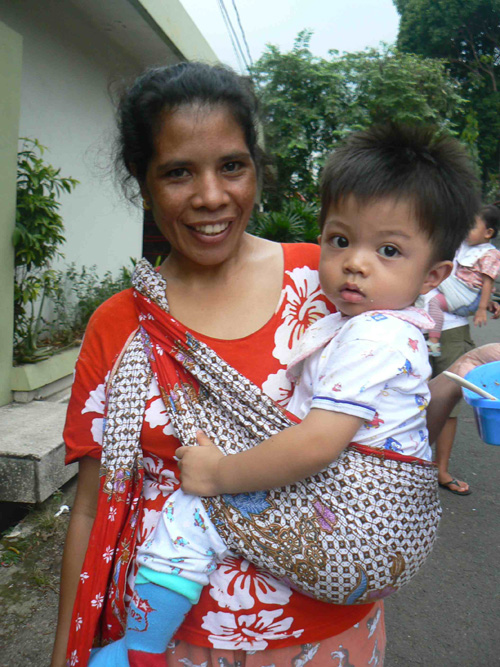“The maternity hospital suggested a C-section, but I didn't have the money,” Juhri, a motorcycle taxi driver in Depok, a Jakarta suburb, said of the US$1,000-$1,500 procedure. “I took her to a midwife, but she could not handle the delivery.”
The fate of Juhri’s wife points to a larger problem plaguing Indonesia – a woman’s lack of power over her own healthcare decisions, contributing to the high maternal mortality rate.
“Inequality in decision-making, limited access to health services in rural areas and lack of information on healthy pregnancy are among the factors that contribute to maternal deaths,” said Masruchah, secretary-general of the National Commission on Violence against Women.
“There's a view that husbands should have final say over domestic matters, but men often don't know what their wives feel,” said Masruchah, who like many Indonesians goes by one name.
“And then she died”
Despite government efforts to increase the number of skilled birth attendants and promote family planning, at least 10,000 women die of childbirth related causes every year in this largely Muslim nation of more than 240 million people, according to a World Bank report published in February.
The report, ‘... And then she died,’ Indonesia Maternal Health Assessment, puts the maternal mortality rate at 228 deaths per 100,000 live births, compared with UN World Health Organization data from 2005, published in 2007, which refers to a rate of 450 in India, 62 in Malaysia and six in the Netherlands.
|
Photo: Esther de Jong/IRIN  |
| Many Indonesian women are unable to make critical decisions about their own healthcare |
“Pregnant mothers are often too late in identifying danger signals during pregnancy and in making decisions, because women often have to wait for their husbands or parents to make decisions,” said Linda Gumelar, Minister for Women’s Empowerment and Child Protection.
Sub-standard care
Home deliveries and the use of traditional birth attendants have contributed to maternal deaths, with the study showing only 10 percent of poor women in two districts of the country’s populous West Java Province being attended by a health professional at the birth.
According to the World Bank report, a survey of three districts showed 63 out of 76 deaths occurred in home births assisted by traditional birth attendants.
“Interventions by the skilled birth attendants in many cases are not in line with existing standards and prove to be ineffective in trying to address the emergence of complications,” it said.
Traditional practices and myths associated with pregnancy often obstruct prompt medical intervention, said Sutan Finardhy, an obstetrician-gynaecologist who has worked in rural areas for more than 20 years.
Family members and even neighbours often advise against medical treatment for pregnant mothers.
“In some cases, husbands agreed to a doctor's advice, but parents insisted on taking the mothers home or resorting to traditional means,” Finardhy said. “By the time the mothers had access to medical intervention, it was already too late.”
Indonesia's 2007 Demographic and Health Survey indicates inequity between provinces – with 97 percent of births attended by skilled providers in Jakarta, against only 33 percent in the Maluku Islands.
The World Bank said only 40 percent of the country's 68,816 villages had a midwife in 2005.
The report urged the government to improve the training institutions, increase the number of obstetricians, gynaecologists and anesthesiologists, and increase overall funding for maternal health across the country.
atp/at/mw
This article was produced by IRIN News while it was part of the United Nations Office for the Coordination of Humanitarian Affairs. Please send queries on copyright or liability to the UN. For more information: https://shop.un.org/rights-permissions





